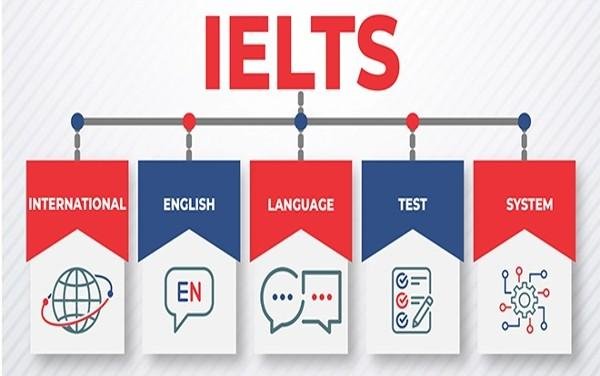IELTS Coaching in Chandigarh
Table of Contents
- Introduction
- Understanding IELTS
- Benefits of IELTS
- Number of Attempts for IELTS
- Strategies for Achieving a High Score
- Evaluating the Difficulty of IELTS
- Conclusion
Introduction
In today’s interconnected world, proficiency in English is more critical than ever, whether for pursuing higher education, career advancement, or immigration purposes.
The International English Language Testing System (IELTS) is a crucial assessment tool that measures English language skills and is widely recognized across the globe. For individuals in Chandigarh aiming to excel in IELTS coaching in Chandigarh sector 34, enrolling in a specialized coaching program can be a transformative step towards achieving a high score.
This article provides a comprehensive overview of IELTS, its advantages, the number of attempts permitted, strategies for success, and insights into the test’s difficulty.
What are the IELTS?
The International English Language Testing System (IELTS) is an internationally recognized test designed to assess English language proficiency. It evaluates four key areas:
1. Listening
The Listening section tests your ability to understand spoken English in various contexts. It consists of four sections, each with a different type of audio recording, including conversations and monologues.
2. Reading
The Reading section assesses your ability to comprehend written English. It includes a variety of texts, such as articles, advertisements, and academic passages, and features questions designed to test different reading skills.
3. Writing
The Writing section evaluates your ability to produce written text in English. You are required to complete two tasks: one involves describing visual information, and the other requires you to respond to a prompt with an argumentative or discursive essay.
4. Speaking
The Speaking section assesses your spoken English skills through a face-to-face interview with an examiner. It is divided into three parts: an introduction and interview, a long turn where you speak about a given topic, and a discussion related to the topic.
Benefits of IELTS
Taking the IELTS offers numerous advantages, making it a valuable investment for many individuals:
1. Enhanced Educational Opportunities
A high IELTS score is often a prerequisite for admission to universities and educational institutions in English-speaking countries. It demonstrates your ability to engage with academic content and succeed in an English-language environment.
2. Career Prospects
For professionals seeking to work in international settings or multinational companies, a strong IELTS score can enhance job prospects. Employers often look for evidence of effective English communication skills, and a good IELTS score can serve as proof of your proficiency.
3. Immigration and Visa Requirements
Many countries, including Australia, Canada, and the UK, use IELTS scores to assess the English language proficiency of immigration applicants. A high score can facilitate the visa application process and increase your chances of meeting immigration requirements.
4. Personal Growth and Confidence
Preparing for and achieving a high score in IELTS can boost your confidence in using English. It helps you develop valuable communication skills that are beneficial both personally and professionally.
Number of Attempts for IELTS
IELTS does not impose a limit on the number of times you can take the test. You can attempt the IELTS as many times as necessary to achieve your desired score. However, it is essential to consider the time, effort, and cost associated with multiple attempts.
Preparing for Multiple Attempts
If you find yourself needing to retake the IELTS, use each attempt as a learning opportunity. Analyze your performance, focus on areas where you struggled, and refine your preparation strategies. Enrolling in a coaching program can offer additional support and guidance to help you improve and achieve better results.
Strategies for Achieving a High Score
To succeed in IELTS, it is crucial to adopt effective preparation strategies. Here are some key approaches:
1. Understand the Test Format
Familiarize yourself with the structure and requirements of each section of the IELTS. Knowing the types of questions and tasks involved will help you approach the test with greater confidence and efficiency.
2. Engage in Consistent Practice
Regular practice is vital for mastering the IELTS. Work on practice tests for each section to simulate real exam conditions and identify areas where you need improvement. Consistent practice helps build familiarity with the test format and enhances your skills.
3. Utilize Official Preparation Materials
Make use of official IELTS study materials, including practice tests and past papers. These resources provide a realistic sense of the exam content and help you prepare more effectively.
4. Seek Professional Coaching
Enrolling in an IELTS coaching program in Chandigarh can provide structured support and expert guidance. Coaching centers offer personalized feedback, practice sessions, and strategies tailored to your specific needs, helping you enhance your performance.
5. Improve Overall English Proficiency
In addition to targeted IELTS preparation, work on improving your overall English language skills. Engage in activities such as reading English newspapers, watching English TV shows, and practicing conversations with native speakers to build fluency.
6. Practice Time Management
Effective time management is crucial during the IELTS test. Practice answering questions within the allotted time to ensure you can complete each section efficiently. Develop strategies for managing your time during the exam to avoid feeling rushed.
Evaluating the Difficulty of IELTS
The difficulty of IELTS can vary depending on your current level of English proficiency and preparation efforts. While some may find the test challenging, others may find it more manageable with thorough preparation.
Factors Affecting Difficulty
- Language Proficiency: Your current level of English skills plays a significant role in how difficult you find the test. Those with a strong command of English may find the test less challenging compared to those with lower proficiency.
- Preparation Level: Comprehensive preparation can significantly impact your performance. Thorough study and practice help you become familiar with the test format and improve your skills, making the test more manageable.
- Test-Taking Strategies: Effective strategies for test-taking, such as understanding question types and managing stress, can influence how difficult the test seems. Being well-prepared and confident can make a difference.
Overcoming Challenges
If you find the IELTS challenging, consider seeking additional support through coaching or study groups. Engaging with others who are also preparing for the test can provide motivation and valuable insights.
Conclusion
IELTS coaching in Chandigarh provides a valuable opportunity for individuals aiming to achieve their desired scores and unlock new opportunities. By understanding the IELTS test, recognizing its benefits, knowing the number of attempts allowed, employing effective preparation strategies, and addressing the challenges, you can enhance your chances of success.
A high IELTS score can lead to educational advancements, career growth, and immigration prospects, making it a crucial step in your journey. Embrace the opportunity to prepare thoroughly and approach the test with confidence to achieve your goals and pave the way for a successful future.




